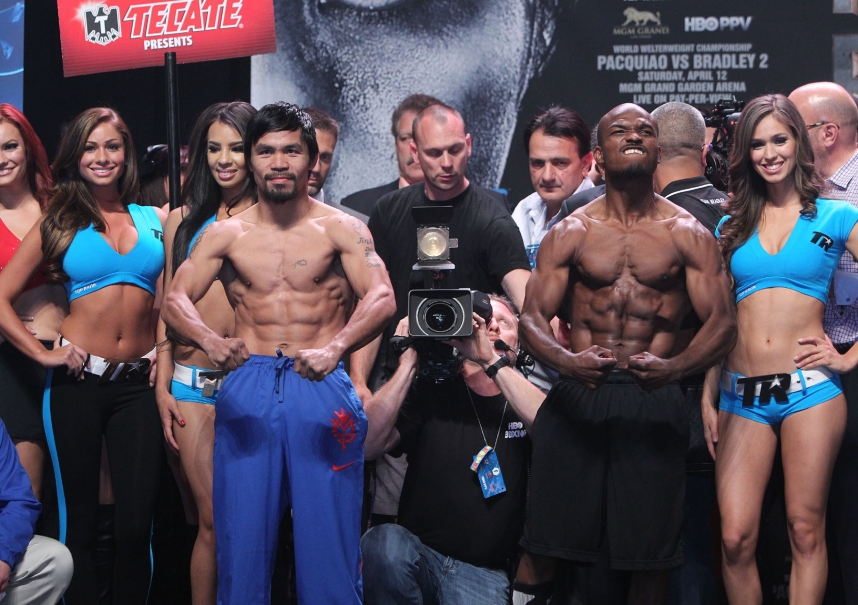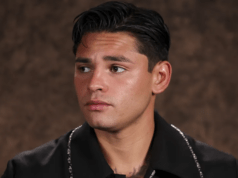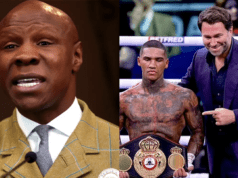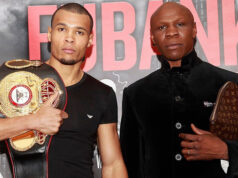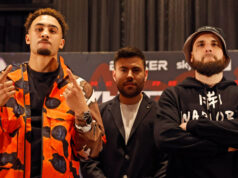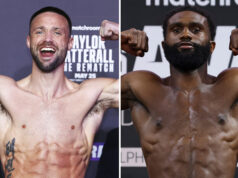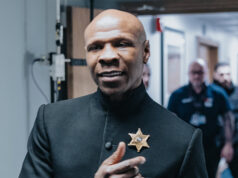Comparing Pacquiao vs. Bradley to Gatti vs. Ward is Absurd:
First thing’s first: Jim Lampley is one of the best at what he does. He truly is a credit to the sport of boxing. He adds a very articulate voice to the sport, as well as consummate professionalism. For years, he has helped fans make sense of what they’re seeing. But in recent years, it seems that maybe he’s grown a bit heavy-handed in his approach.
At the conclusion of Saturday’s Manny Pacquiao rematch win over Timothy Bradley, he was making comparisons to the treasured trilogy between Arturo Gatti and Micky Ward. As he tried to attach meaning to the fight, he made a clear misstep. It was certainly a decent fight–a moderately-entertaining bout that was by no means a disappointment. It was better than the first fight. But to evoke the Gatti-Ward rivalry was way over-the-top.
In addition, Lampley suggested that Pacquiao and Bradley should meet a third time. Why? The Police Academy movies had more just cause for a third installment than this rivalry. Even having just the one rematch was somewhat suspect, being that it was borne out of two judges being incompetent. There wasn’t much doubt the first time. There certainly wasn’t after this fight. It was useful, in that it provided an accurate barometer for where Pacquiao now stands in his career, but it’s clearly time to turn the page.
Here’s my problem with Lampley and to some degree, his colleague Max Kellerman. Boxing history occurs organically. It often needs time to ruminate and eventually, the historical ramifications will form on their own. It becomes tiresome when Lampley tries to cram a fight into its proper historical placement as the fight is occurring, or moments after it is over.
I need announcers to allow boxing history to frame itself, rather than clumsily and hyperbolically trying to frame history themselves. I don’t remember hearing Don Dunphy or Howard Cosell telling me how to historically perceive fights as I was watching them. And if they ever did, it would at least be somewhat accurate. To elicit the names Arturo Gatti and Micky Ward as Pacquiao and Bradley sporadically went toe-to-toe was sort of like hearing nails screeching on a chalkboard.
The duo of Kellerman and Lampley make for some shrill moments. Let us watch the fight and you describe the action. That doesn’t mean feeling like you have to constantly offer historical guidance on how we look at fights. There’s a lot bigger heavyweights in the realm of boxing history than Jim Lampley.
To Lampley and Kellerman’s credit, they know the sport. It’s not like when listening to Showtime’s Mauro Ranallo and over the course of an evening, it becomes clear he isn’t a true-blue boxing guy. HBO wins the battle when it comes to overall boxing expertise throughout the announcing crew. Just don’t club us over the head with it. For those of us who actually have a pretty good handle on boxing history, it’s a big turn-off. Especially when you’re wrong. And the names Arturo Gatti and Micky Ward really did not require mention on this particular telecast.
I feel bad taking Lampley to task. He’s a nice guy. As fellow North San Diegans, I’ve run into him a number of times and he was always polite and receptive. And one of those times was at a urinal, where I was probably acting a bit too enthusiastic considering the setting. You couldn’t ask for a better announcer and he’s been doing it forever. I dread the day when I tune into HBO and he isn’t there.
It’s just that the Arturo Gatti-Micky Ward rivalry has a special place in my heart, as I’m sure it does for Lampley. I also realize that when you don’t expect to see a lot of toe-to-toe fighting, it’s easy to blow it out of proportion when it does happen. In addition, for every hardcore boxing fan, there are at least ten other guys who could probably use some historical referencing when watching a fight. Pacquiao-Bradley II was a decent enough fight. The thought of a third fight shot into Lampley’s head and when thinking trilogies, Gatti-Ward is a thought that is bound to soon follow. He said it. We all misspeak and our foibles would be far more grandiose if someone put a mic on us for every big fight.
At the same time, there is something to be said for allowing boxing history to take form. Let it percolate and materialize on its own. It takes time. Sometimes, it’s obvious and the historical tie-in serves its purpose. But in most fights, it seems like what we’re watching isn’t being put into perspective so much as it’s being crammed.


